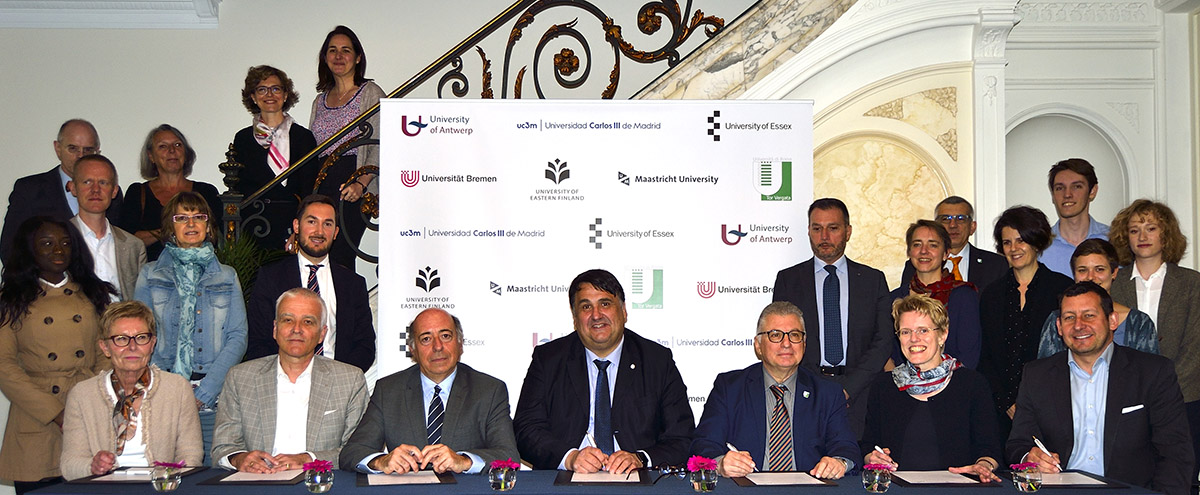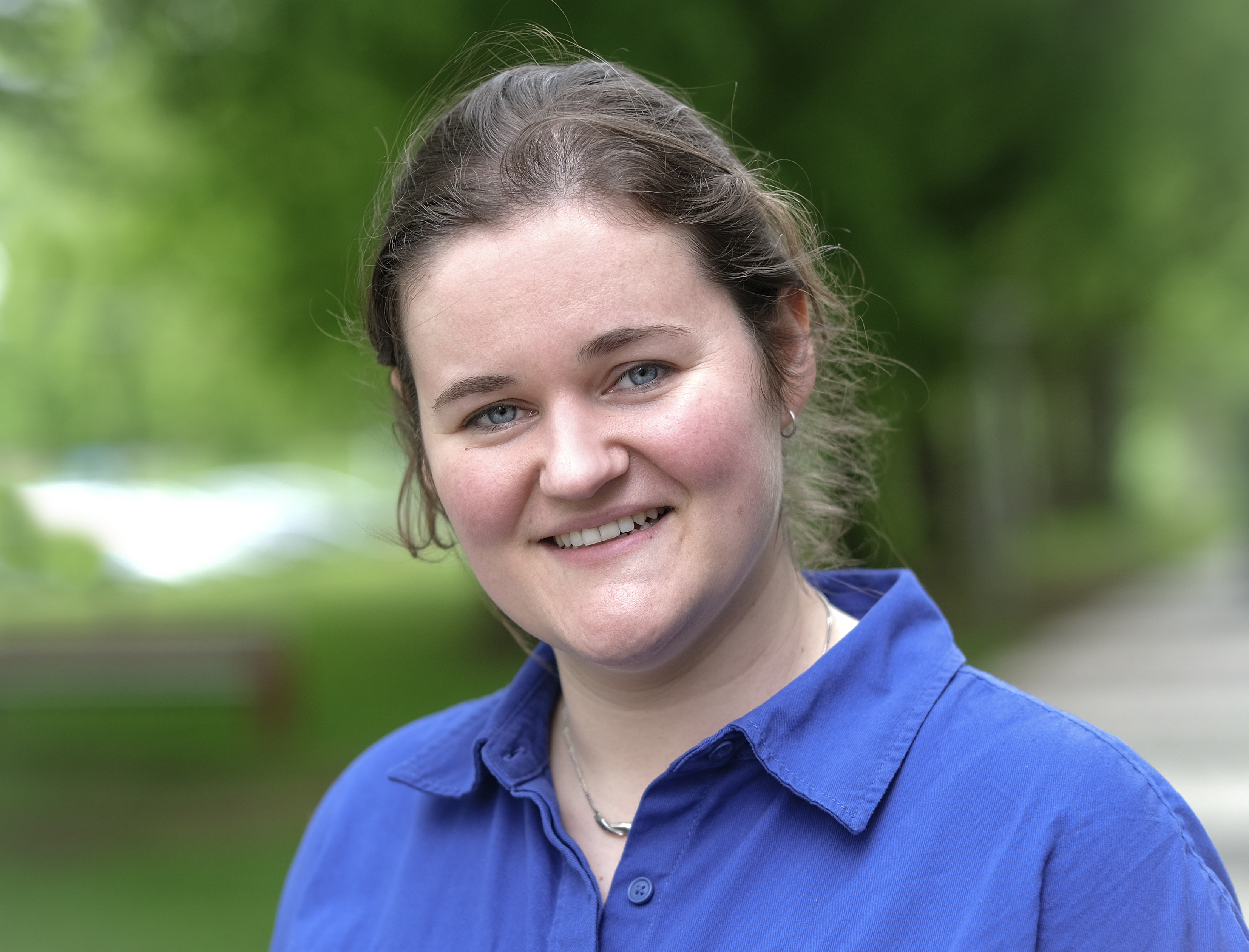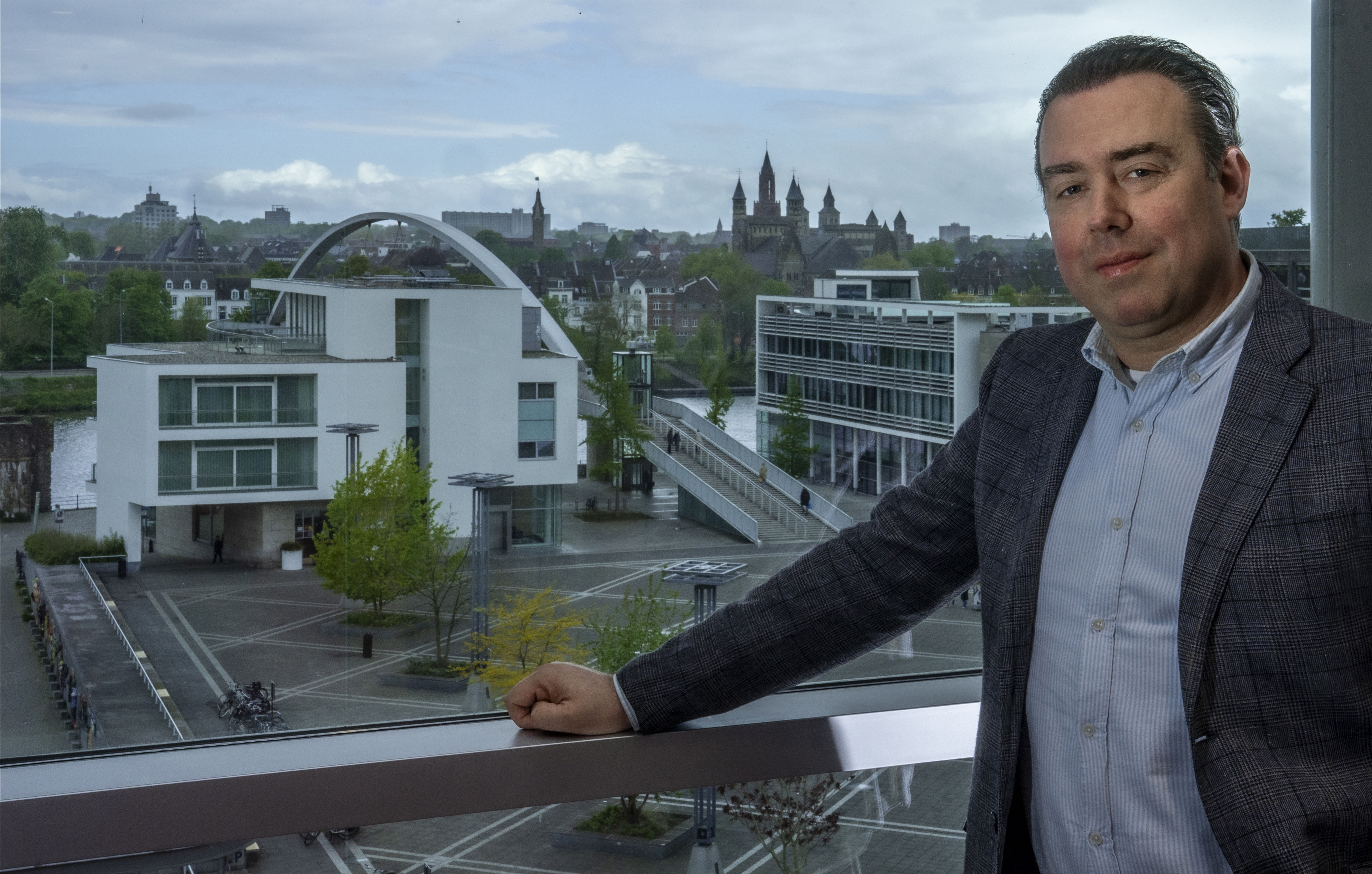UM leads Young Universities for the Future of Europe alliance
Maastricht University and six other young European universities have agreed on a proposal to form an alliance as part of the European University initiative, first outlined by French President Emmanuel Macron in 2017.

The European Commission (EC) has thrown its weight behind the initiative and is pushing for the creation of up to 20 European university networks by 2024. These bottom-up alliances of universities are to collaborate in research, education and innovation and set new standards in the free movement of ideas. They are part of efforts to achieve further integration of the European higher education area (EHEA). The first pilot will start in the second half of 2019.
Education and research across borders
Apart from Maastricht University, the Young Universities for the Future of Europe (YUFE) alliance consists of six young top-level universities from the YERUN network (Young European Research Universities Network): the University of Antwerp, the University of Bremen, the University of Rome Tor Vergata, the University of Eastern Finland, the University Carlos III of Madrid, and the University of Essex.
What has brought the seven young universities together is the shared aim to contribute to a more competitive, innovative and united Europe. The universities, which already have several joint activities within the YERUN framework, emphasize the need to increase employability and embedded mobility schemes for students and staff, foster inclusive higher education and invest in the active learning of European languages.
Towards a European higher education area
In doing so, YUFE will promote active European citizenship within a shared European environment. This will be pursued in a truly bottom-up process. In the YUFE alliance, teams of staff and students will collaborate on how to address European (and global) challenges. They will work on how to promote joint educational programs and services and develop mechanisms to facilitate the mobility of students and staff to create a joint higher education landscape without borders. As the participating universities already have a tradition of working together, the current alliance is seen as a logical step to further interaction and collaboration.
“This is an alliance of the people”, says Prof. dr. Martin Paul, president of the UM Executive Board. “There is a strong willingness of all stakeholders within our universities, boards, staff and most importantly also the students, to develop activities together and make this initiative a truly European success.”
Moreover, the YUFE initiative will also include collaborations with the public and private sector in the region, such as the UM’s Brightlands initiative. This will boost the alliance’s social and economic impact.
Maastricht University
UM will lead the alliance as part of this European Commission pilot, the results of which will be published in mid-2019. During the application and pilot phases, UM and its partners will also share their experiences with other relevant stakeholders.
Attending the presentation of the alliance at the UM Campus Brussels on 17 May were representatives of the partner universities, the permanent representations and ministries of the respective countries, and the European Commission. Also present were the students of the partner universities who had played an active role in formulating the vision of the alliance. These students will continue to be closely involved in the development and implementation of the initiative.
Florentine Friedrich, University College Maastricht student: “I am excited about being involved in the European University initiative because it has the potential to let students study freely across Europe. As a student, being able to benefit from the facilities of universities across Europe as if it was my home university represents the idea of a veritable European campus. The initiative will also foster a truly European job market, which for soon-to-be graduates like myself will open countless more opportunities.”
Already in 2011, Prof. dr. Martin Paul pleaded for European universities in The Guardian.
Also read
-
As a patient in a hospital, you see many different faces at your bedside every day: a nurse measuring your blood pressure, a doctor or nurse practitioner informing you about the care plan, and a nutritionist providing you with the right food and drinks. Although all these caregivers have their own...
-
What does it mean to live and work in a city with an international university? When do you notice the university, and how does it benefit you? We asked Maastricht native Stefan Vrancken (50), who works as an associate notary. In his spare time, Vrancken is also an amateur historian and genealogist...
-
Dani Shanley and Joshi Hogenboom on synthetic data, the pains and gains of interdisciplinarity, and why AI likely won’t release us from having to study the world we live in.
- in Featured


